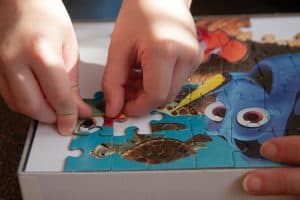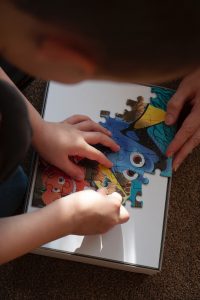In this article, we will explore how jigsaw puzzles help to reduce screen time for kids and the many advantages they offer in terms of improving fine motor skills, cognitive skills, problem-solving, and more. In today’s digital age, children are spending more and more time glued to screens, whether it be television, tablets, or smartphones.
This excessive screen time has been linked to various negative effects such as decreased physical activity, obesity, and poor sleep. However, there is a fun and challenging activity that can help reduce screen time for kids and provide numerous benefits for their development – jigsaw puzzles.
How Jigsaw Puzzles Help to Reduce Screen Time for Kids
Jigsaw puzzles are a fantastic alternative to screen time, allowing children to engage in a fun and challenging activity that does not involve any electronic devices. By providing children with a puzzle to solve, they are encouraged to think critically and use problem-solving skills, diverting their attention away from screens. This is particularly important in today’s society, where screens dominate many aspects of our lives and children are easily drawn to their captivating nature.

Improving Fine Motor and Cognitive Skills
Completing a jigsaw puzzle requires precise hand movements and coordination, which helps improve fine motor skills in children. Manipulating and fitting puzzle pieces into place builds their hand-eye coordination, allowing them to develop dexterity and control over their movements. Additionally, jigsaw puzzles engage cognitive processes such as spatial reasoning, as children must mentally rotate and visualize how the pieces fit together. This exercise enhances their spatial awareness and overall cognitive function, strengthening their problem-solving abilities.

Age-Appropriate Entertainment
Jigsaw puzzles come in various difficulty levels suitable for different age ranges and skill levels. This age-appropriate entertainment offers children the opportunity to engage in a meaningful and educational activity that aligns with their developmental young age stage. From simple puzzles featuring farm animals for toddlers, to complex puzzles depicting the periodic table for older children, there is a puzzle for every child’s age and skill level. This ensures that they are appropriately challenged while also having fun and learning.
Promoting Child Development
Jigsaw puzzles are not only an entertaining pastime but also an effective tool for promoting child development. By engaging in puzzle-solving activities, children learn to solve problems and develop strategies to overcome challenges. These critical thinking skills are crucial for their cognitive growth and apply to various areas of their lives. Furthermore, completing puzzles can boost a child’s self-esteem as they feel accomplished and proud of their achievements. This sense of accomplishment fosters a positive attitude towards learning and motivates them to take on new challenges.

The Benefits Extend Beyond the Child
Engaging in jigsaw puzzles can also have positive effects on the whole family. Solving puzzles together allows family members to spend quality time with one another, strengthening social bonds and creating lasting memories. It is a great opportunity for parents and siblings to connect with the young minds of their children and share in their accomplishments. This shared experience not only reduces screen time but also enhances the well-being of the entire family.
Reducing Screen Time and Its Negative Effects

Excessive screen time has been linked to various negative effects on children’s health and development. It can adversely affect attention span, shorten the time spent on other activities such as outdoor play, and even lead to increased blood pressure. By replacing screen time with jigsaw puzzles, children can engage in a productive and fulfilling activity that promotes their cognitive and motor skills without the harmful effects of screens.
Final Thoughts
Jigsaw puzzles provide a valuable alternative to screen time for kids and offer many benefits for their development. They improve fine motor skills, cognitive skills, problem-solving abilities, and spatial reasoning. By choosing age-appropriate puzzles, children can engage in a challenging activity that aligns with their developmental stage. Additionally, puzzles promote family bonding and create a fun activity for the whole family. In a world dominated by screens, jigsaw puzzles act as a tool to reduce screen time and stimulate young minds, fostering healthy development and well-being.

